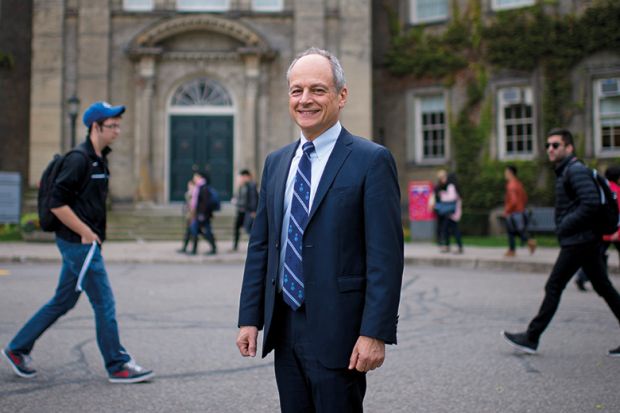The rush to open international branch campuses has undermined universities’ relationships with their local communities, according to a sector leader.
Speaking at the British Academy on 5 June, Meric Gertler, president of the University of Toronto, argued that the taste for launching overseas outposts over the past two decades was likely to have diverted resources away from universities’ home activities and might well have contributed to waning confidence in higher education institutions.
According to an advance copy of his speech, Professor Gertler was due to say that his hypothesis was “that the establishment of an overseas campus weakens a university’s local ties, and further undermines local confidence in its commitment to fostering local prosperity and economic opportunity”.
“Traditionally, universities have been viewed as spatially embedded in their host communities, unlike private capital. Until quite recently, they have not deployed spatial mobility as a competitive strategy; they were in it for the long haul. Communities recognised and valued this,” Professor Gertler was due to say.
Communities also recognised that their “local hero” institution might need to become involved in international collaborations and exchanges, because these “leave the host community and its institution stronger”.
“But deploying scarce resources to start and operate an overseas branch, to achieve a measure of prestige that allegedly cannot be achieved at home, is a different matter,” Professor Gertler was due to say.
Professor Gertler was due to say that universities should not turn away from their international activities. He argued that it was essential to “celebrate international research partnerships and explain more clearly why they are important”, and how they benefit local communities.
But he was also due to say that universities should focus more on their “city-building mission”. As well as helping to attract staff and students, such activities would “demonstrate visibly their concern for the well-being of their neighbours”.
“Research that addresses a city’s most pressing challenges can lead to very significant advances of both a fundamental and applied nature. Outreach and other forms of public service by our faculty and students can play a key role in elevating the level of debate and understanding of urban challenges. And doing this in a visible and deliberate way speaks volumes of the university’s core values and commitments to social betterment,” Professor Gertler was due to say.
Universities would also struggle to improve relations with local communities if they continued to be seen as “bastion[s] of exclusion and privilege”, Professor Gertler was due to say. Institutions must lower the cost of higher education and make it more transparent, while also recruiting more students from local neighbourhoods that traditionally have not sent many students to them.
“The failure of universities – and especially the more elite institutions – to move the needle significantly on access and socio-economic diversity is a major factor contributing not only to the declining esteem with which our institutions are regarded, but also the parochial turn in national politics,” Professor Gertler was due to say.
Speaking to Times Higher Education ahead of the talk, Professor Gertler said: “One of the premises for setting up an overseas campus [is about] elevating a university’s profile on the world stage. I’ve tried to turn that argument on its head: global reputation starts at home.”




